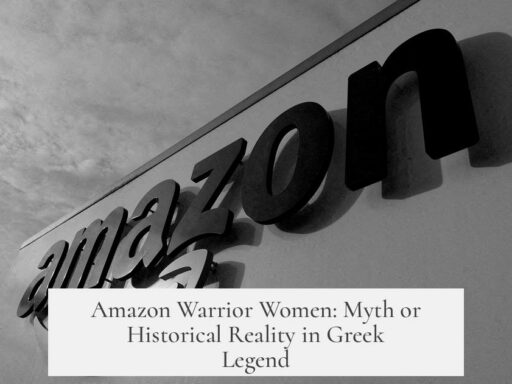Eric Clapton’s song “Layla” is about his unrequited love for Pattie Boyd, George Harrison’s wife. George Harrison was aware of Clapton’s feelings, but he initially downplayed the situation. The revelation created tension but did not end their friendship immediately.
The three shared a complex relationship in the late 1960s, with Clapton becoming close friends with Harrison and Boyd. Clapton even played guitar on Harrison’s Beatles track, “While My Guitar Gently Weeps,” showing their musical bond. The friendship, however, harbored emotional complications beyond music.
By 1968, Harrison and Boyd’s marriage was strained. Boyd describes Harrison as withdrawn and unfocused on their relationship. Harrison’s spiritual pursuits led to a detached approach to fidelity, evident in his involvement with other women. This created pain for Boyd, who remained close to Clapton during those difficult times.
Clapton’s growing infatuation with Boyd was intense. He admired her personality and beauty, feeling conflicted about his emotions. Inspired by a Persian love story of Layla and Majnun, told to him by Alice Ormsby-Gore, Clapton channeled his feelings into the song “Layla.” The story trait aligns with his own longing for an unavailable woman.
Clapton secretly played “Layla” for Boyd during a private meeting. The song’s powerful emotional expression moved her deeply. It depicted a man hopelessly in love with a woman committed to someone else, mirroring Clapton’s real-life situation.
Clapton eventually confessed his love directly to Harrison at a party around July 1970. The interaction was awkward, with Harrison hurt but choosing to respond lightly. This reaction suggested Harrison may have already suspected Clapton’s feelings. Boyd witnessed the scene and felt distraught, retreating from the social setting afterward.
The timing of the confession coincides with the period shortly before Clapton recorded “Layla” in September 1970 in Miami with Derek and the Dominos. Harrison was involved in forming the band and even attended their initial concert, but his role waned after the July incident. The song was not part of the early live performances, possibly due to the strained dynamics.
Boyd’s contact with Clapton diminished significantly after the confession, limiting his influence over events. Harrison likely heard “Layla” after its release and fully grasped the song’s meaning then. The emotional weight of the song resonates with the personal conflict among the three.
- Clapton and Harrison shared a deep friendship complicated by Clapton’s love for Boyd.
- Harrison was aware of Clapton’s feelings before the song was recorded.
- “Layla” was inspired by a Persian love story reflecting Clapton’s emotional turmoil.
- Confession at a 1970 party revealed the love triangle openly.
- Harrison reacted with pain but maintained composure and continued collaboration initially.
- After the confession, Harrison stepped back from involvement in the band’s recordings.
The “Layla” story highlights complex human emotions intersecting with creativity. Friendship, love, and pain combined to produce a timeless rock anthem. Harrison knew about Clapton’s feelings early; his response mixed hurt with restraint. The song remains a testament to passionate but complicated love.
Did George Harrison Know About Eric Clapton’s “Layla” and How Did He Feel?
Yes, George Harrison knew Eric Clapton’s song “Layla” was about his wife, Pattie Boyd, before the song was recorded. His reaction was complex—hurt but humorous—showing the tangled emotions of friendship, love, and betrayal. This tale reads like a rock ’n’ roll soap opera with a soundtrack that changed music history forever.
Let’s unravel the story behind the hit classic and the emotional storm swirling around it.
The Close-Knit but Complicated Friendship
Eric Clapton, George Harrison, and Pattie Boyd shared more than just social circles—they were entwined in a dense, complicated web of friendship and emotion. Clapton wasn’t just a casual friend; he even played guitar on the Beatles’ White Album track “While My Guitar Gently Weeps,” a unique honor for someone outside the band.
But beneath the musical collaboration lay personal tensions. According to Boyd’s memoir Wonderful Tonight, by 1968, George and Pattie’s marriage was rocky. In fact, George had grown distant and distracted, diving deep into spirituality and following the Krishna movement. His focus shifted, and fidelity slipped—Boyd found herself questioning George’s actions and loyalty.
So here’s a marriage on unstable ground when Clapton, the devoted friend turned secret admirer, starts yearning for Pattie.
Clapton’s Emotional Highs and Lows: The Birth of “Layla”
Clapton’s feelings weren’t some casual crush; they were intense, conflicted, and profound. He admired Pattie’s beauty not just outwardly but inwardly, and he was captivated by aspects of her that George had seemingly abandoned.
“I realized that I would have to stop seeing her and George, or give in to my emotions and tell her how I felt.”
What made Clapton’s story even more dramatic was his inspiration from a Persian love tale called Layla and Majnun. In this story, Majnun is hopelessly in love with Layla but cannot be with her. Clapton identified deeply with Majnun’s aching devotion, and from this emotional wellspring, “Layla” was born.
Clapton even played the song for Pattie in a secret London meeting—an intense confession wrapped in music. Imagine hearing the most powerful and moving song about forbidden love, played by the very man who wrote it, to whom you are married and yet emotionally distant.
The Dramatic Confession: Clapton Tells George Harrison
The story escalates when Clapton bluntly told George Harrison himself at a party:
“I’m in love with your wife.”
This must’ve been one of the most awkward moments in music history. According to Clapton and Boyd, George reacted with a mix of pain and humor. His eyes gave away his hurt, but he chose to joke, maybe to defuse the tension.
Boyd recalls the incident vividly: George anxiously asked where she was, only to find her with Eric. The atmosphere must have been electric with shock and hurt.
Later that evening, George’s retreat into his studio says volumes about emotional escapism. Boyd herself said she was mortified and said, “George, I’m coming home.”
Timing of the Song and Harrison’s Awareness
This confession likely happened in July 1970, around the time of a party after seeing the London debut of Oh! Calcutta! Interestingly, the studio version of “Layla” was recorded a couple of months later, in Miami.
George was involved with the formation of Derek and the Dominos—the band Clapton fronted—but he didn’t take part in the Miami sessions for “Layla.” He was backstage for their first concert in June but the song wasn’t played live. Maybe personal emotions complicated his musical involvement.
Boyd states she saw Clapton only once between July and November 1970, making it unlikely that George had heard the finished recording before he already knew what “Layla” was about. In other words, George likely knew the essence of the song well before its public release.
Layers of Emotion: How Did Harrison Deal with It?
George Harrison’s reaction straddles the line between stoic acceptance and personal hurt. The fact that he chose to “make light” rather than confront the situation head-on reveals a coping strategy common in painful friendships—humor often masks deeper wounds.
The irony is thick here. His closest friend writes a heartbreak anthem about loving his wife, yet he keeps the friendship alive, at least for a while. Harrison might have been relieved that Clapton was honest; perhaps he suspected the feelings but hearing them aloud confirmed painful truths.
But this was no simple love triangle. Harrison’s withdrawal from Derek and the Dominos’ recording sessions could imply personal tension making collaboration difficult.
Pattie Boyd: The Heart of the Triangle
https://www.youtube.com/watch?v=-uKoTBrwY5k
Boyd’s perspective adds emotional depth to this story. She felt torn, mortified by Clapton’s confession and terrified of the fallout. Being at the center of this unspoken emotional storm was no easy place—she later married Eric Clapton after divorcing George Harrison.
This really flips the classic love triangle on its head, illustrating that friendships and marriage dynamics among rock legends are never straightforward.
What Can We Learn from This Rock ’n’ Roll Saga?
- Honesty Matters: Clapton’s directness with Harrison, while cringe-worthy, set a precedent for open communication—even in awkward circumstances.
- Complex Emotions Drive Creativity: “Layla” didn’t just come from a happy place. Its raw emotion helped it become one of the most iconic love songs ever.
- Friendship Can Survive (or Not) Emotional Turmoil: The story shows that personal feelings can strain but also deepen friendships, depending on how people manage pain and betrayal.
- Art Reflects Real Life Drama: Music history isn’t just about hits; it’s about real stories behind the songs, making the art more profound.
Wrapping Up
The story behind “Layla” is more than a tale of unrequited love—it’s a lesson about friendship, honesty, and the messy nature of human relationships. George Harrison knew about Clapton’s love for Pattie Boyd by mid-1970, and his reaction showed a blend of hurt and humor. While the song immortalized Clapton’s feelings, the personal aftermath was complicated. For music fans and storytellers alike, this slice of rock history reminds us that behind every great song lies a real, often messy human story.
Next time you hear the opening riff of “Layla,” picture the drama, the confession, the secret meetings, and the fragile friendship hanging in the balance. And maybe ask yourself: how would you handle a friend writing a global smash hit about your wife?


